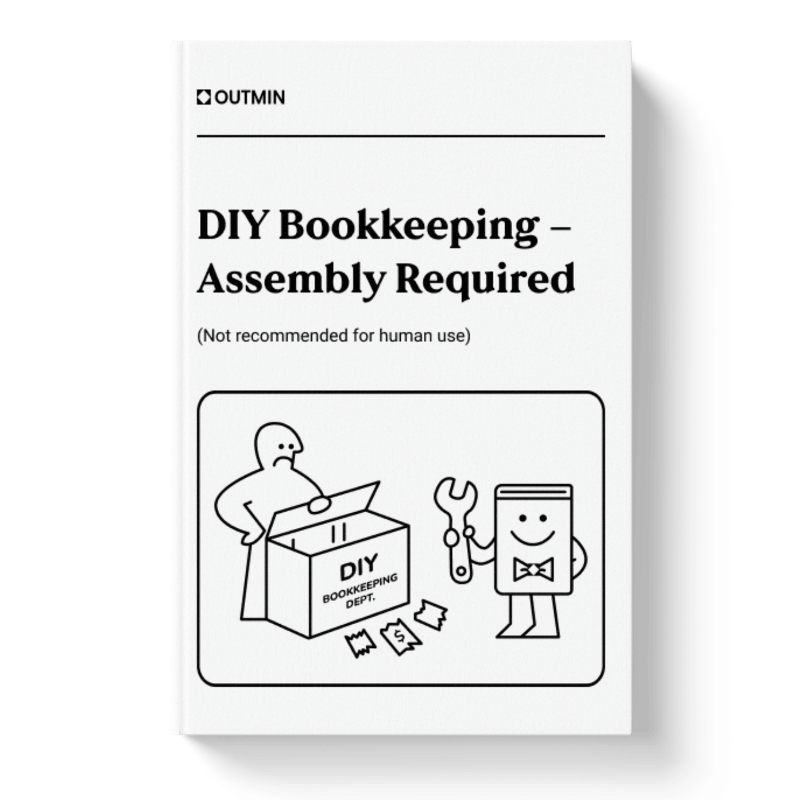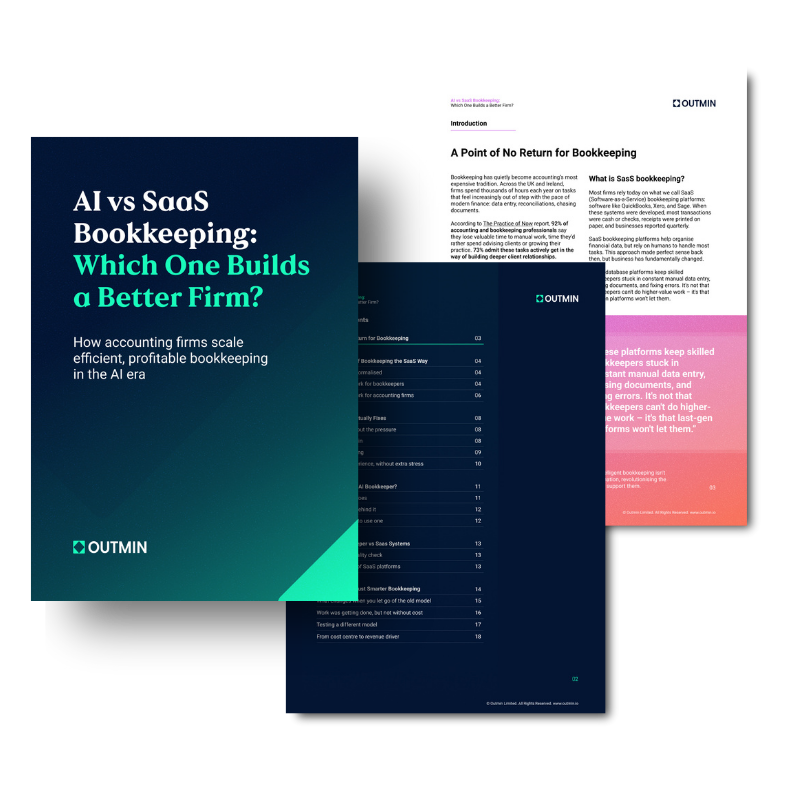July 8, 2024
3 Weak (But) Common Accounting Options for Hospitality Owners

Running a hospitality business is no walk in the park. There's just so much to juggle and so many ways things can go wrong... Whether you're managing a busy fast-casual restaurant, a charming café, or an upscale fine dining establishment, one thing is clear: accounting is crucial. A robust accounting system is the backbone for smooth operations.
Here's the kicker: the way you manage your finances can actually spell the difference between success and disaster. Sadly, many restaurant owners find that the common accounting options—DIY accounting, outsourced accounting, and in-house accounting teams—often fall short. Let’s dive into these options and explore why they might be working against you.
1. DIY Accounting: The Burden of Doing It Alone

Pros:
- Cost-effective
- Complete control over finances
- Immediate access to financial data
Cons:
- Time-consuming and stressful
- Requires extensive accounting knowledge
- High risk of errors
DIY accounting might seem like a cost-effective solution, especially for independent hospitality business owners. After all, who knows your business better than you? However, the reality is that managing your own double-entry accounting can quickly become overwhelming.
As a hospitality owner, your primary focus should be on providing excellent service to your guests, not crunching numbers late into the night.
The time required for DIY accounting cannot be understated. Juggling financial statements, frustrating manual processes, and manual data entry takes away precious hours you could spend on menu planning, marketing, or simply interacting with your customers.
Unless you've got a background in accounting, the learning curve to managing manual accounting processes can be steep. Plus, accounting is notorious for repetitive tasks, so DIY mistakes are almost inevitable. Even small errors like misreading a financial statement can lead to significant compliance issues down the line.
2. Outsourced Accounting: Risky Distance

Pros:
- Access to professional expertise
- Saves time
- Scalable as your business grows
Cons:
- Lack of immediate access to data
- Potential communication issues
- Higher long-term costs
Outsourcing your accounting workflow to accounting professionals can provide much-needed relief from the daily grind of routine tasks. Traditional accounting firms know the tax maze inside out and can keep you compliant. This can be particularly beneficial for hospitality businesses, which often face complex cash flow management scenarios.
However, outsourcing isn’t without its drawbacks.First, the distance between you and your accounting firm can lead to delays in accessing critical financial data (even with best-in-class accounting technology). In an industry like hospitality, where cash flow can fluctuate daily, immediate access to your financial performance is crucial.
Then there's the communication issues. Receiving management accounts some four, six, or even eight weeks after the close of books is frustratingly common. You might find yourself spending a significant amount of time requesting information or explaining specific needs to your accounting firm. And while outsourcing may seem cost-effective initially, the fees can add up over time, particularly as your business grows.
Plus, outsourced accounting services may not always provide the level of customisation and specialisation that your hospitality business needs. Even the best generalist accounting firms will often leave things like payroll services, supplier invoice management, and receipts for the business owner to do. This lack of customisation and specialisation can be a significant drawback for hospitality businesses and their busy owners.
3. In-House Accounting Teams: The Management Challenge

Pros:
- Direct control over the accounting process
- Immediate access to financial data
- Tailored to your business needs
Cons:
- High overhead costs
- Management burden
- Potential for internal bias
Hiring an in-house accounting team gives you direct oversight and immediate access to your financial information, which is a big advantage. Your accountants are part of your staff - they’re on the ground, familiar with daily operations, and can adapt to your needs.
However, building and maintaining an in-house accounting team is very expensive. The operational costs, including salaries, benefits, and office space, add up fast. A lethal cocktail if your financial position is already shaky.
Managing an accounting team adds another layer of responsibility to your already full plate. You're juggling customer service, expense tracking, inventory management, payroll, rent, time tracking, and cash management! Now, it's on you to ensure your accounting team is up-to-date with the latest financial processes and accounting tools, which require continuous training and development.
There’s also the risk of internal bias. Your team, being part of the organisation, might not always provide the objective perspective you need. An external accounting team or firm can offer a fresh, unbiased view, which is crucial for making informed financial decisions.
Automated Accounting: A Better Solution
Pros:
- Streamlined and efficient processes
- Real-time data and insights
- Customisable for hospitality industry needs
Cons:
- Initial setup and learning curve
- Potential for technical issues
- Limited human interaction
The third option, and the one that is gaining popularity in the hospitality industry, is automated accounting (also known as accounting automation). Thanks to advances in Artificial Intelligence, automation software is now sophisticated and user-friendly, making it a solid choice for businesses of any size.
Automated accounting systems offer a range of benefits for hospitality owners. Firstly, they streamline and automate repetitive manual tasks, such as data entry and reconciliation. This frees up your time and minimises the risk of human error. With real-time data and insights, you can make informed decisions on the go and have a clear view of your financial health at any given moment.
Also, automated accounting systems are also highly customisable for the unique needs of the hospitality industry. These systems can easily integrate with point-of-sale (POS) systems to track sales, inventory, and customer transactions. They can also handle complex tasks such as managing food costs, tracking employee wages and tips, and generating detailed financial reports specifically tailored to your needs.
Outmin: The Future is Here
While DIY accounting, outsourced accounting, and in-house accounting teams each offer their own set of advantages, they may not cut it for the complex needs of hospitality businesses. In fact, the traditional accounting function and the standard financial management processes are, at this point, simply outdated and unable to adequately serve this sector.
The good news is that the accounting landscape is evolving. And Outmin is at the forefront of this evolution.
Outmin offers a comprehensive, automated accounting solution tailored specifically for the hospitality industry. We're not just accounting software or an accounting team – we're the best of both worlds.
Outmin replaces the entire financial function, eliminating the need for an accounting firm or an in-house team. From bookkeeping to payroll, tax, and weekly reporting, we handle it all. Imagine never having to deal with manual data entry or tedious accounting tasks again.
Plus, we're super user-friendly. Managing your finances with Outmin is as simple as snapping a photo or dragging and dropping documents into our app. We combine powerful AI with a team of financial experts working behind the scenes to take care of everything for you.
Best of all, Outmin gives you weekly reports full of powerful data about your business's performance so that you can make the best decisions when it matters. This is not something you can get under the current accounting scene.
Outmin is here to help you focus on what you do best: delivering outstanding hospitality. If you're interested in a free tour of our solution, contact us here.









